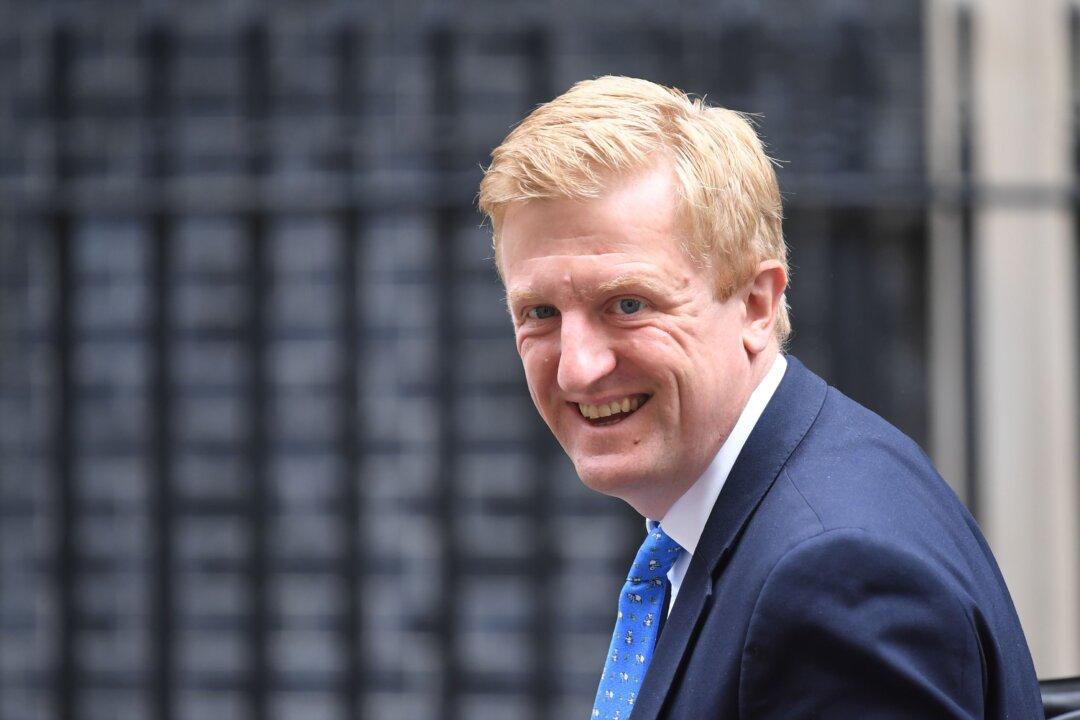LONDON—Britain’s decision to allow China’s Huawei to play a limited role in building its 5G network is not “fixed in stone” and is being reviewed following the imposition of U.S. sanctions, culture minister Oliver Dowden said on Monday.
Britain granted Huawei a limited role in its future 5G networks in January, but officials at the National Cyber Security Centre (NCSC) have since studied the impact of the U.S. measures that were announced in May.





